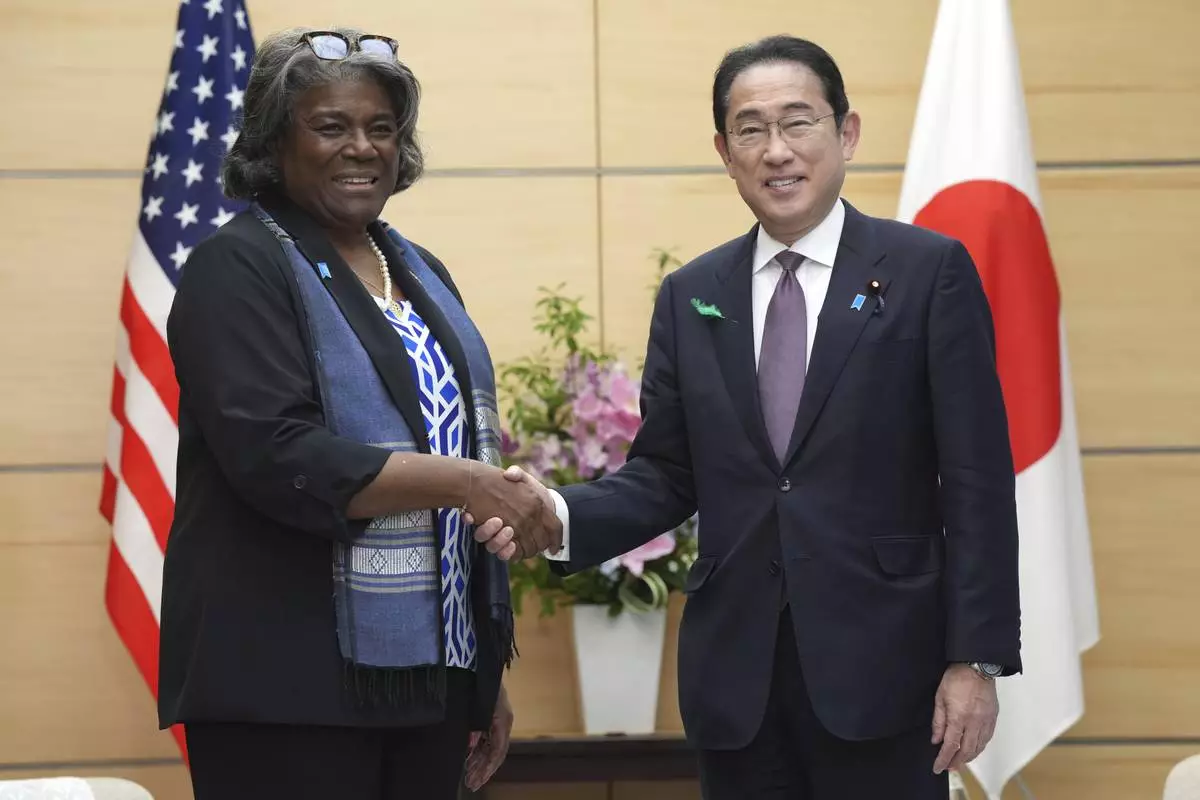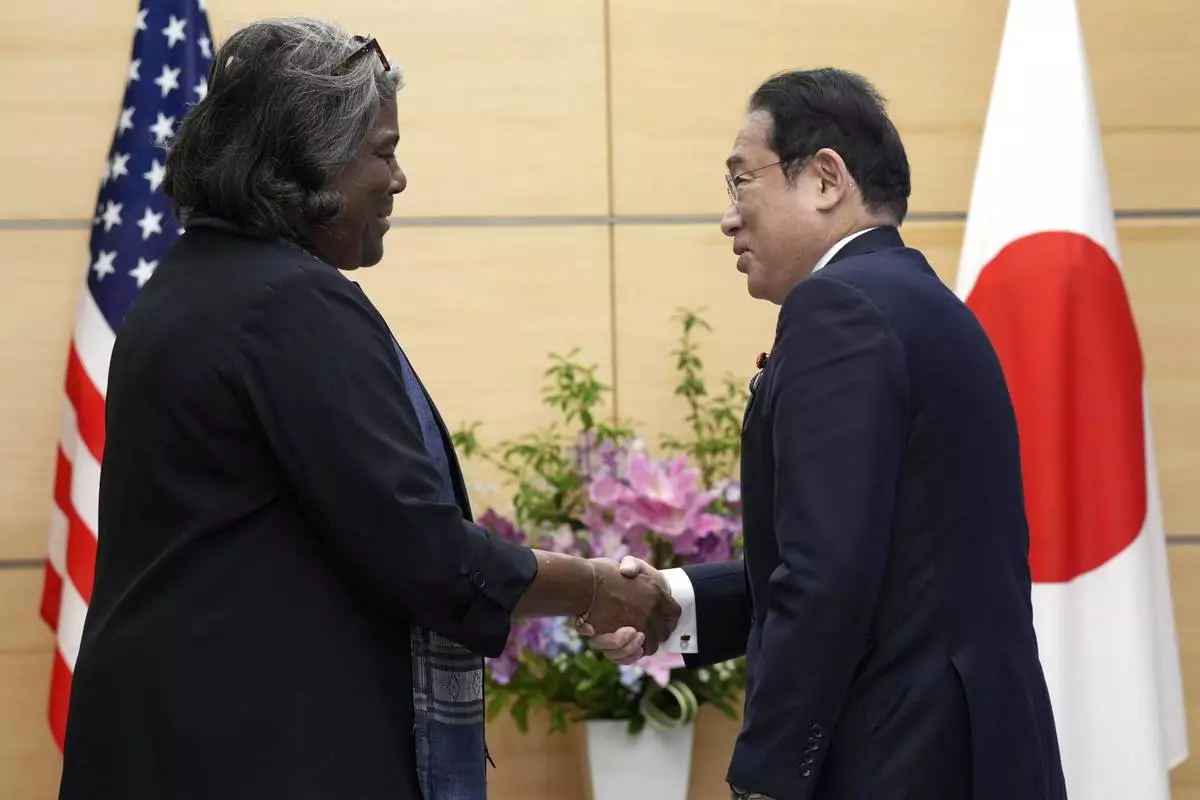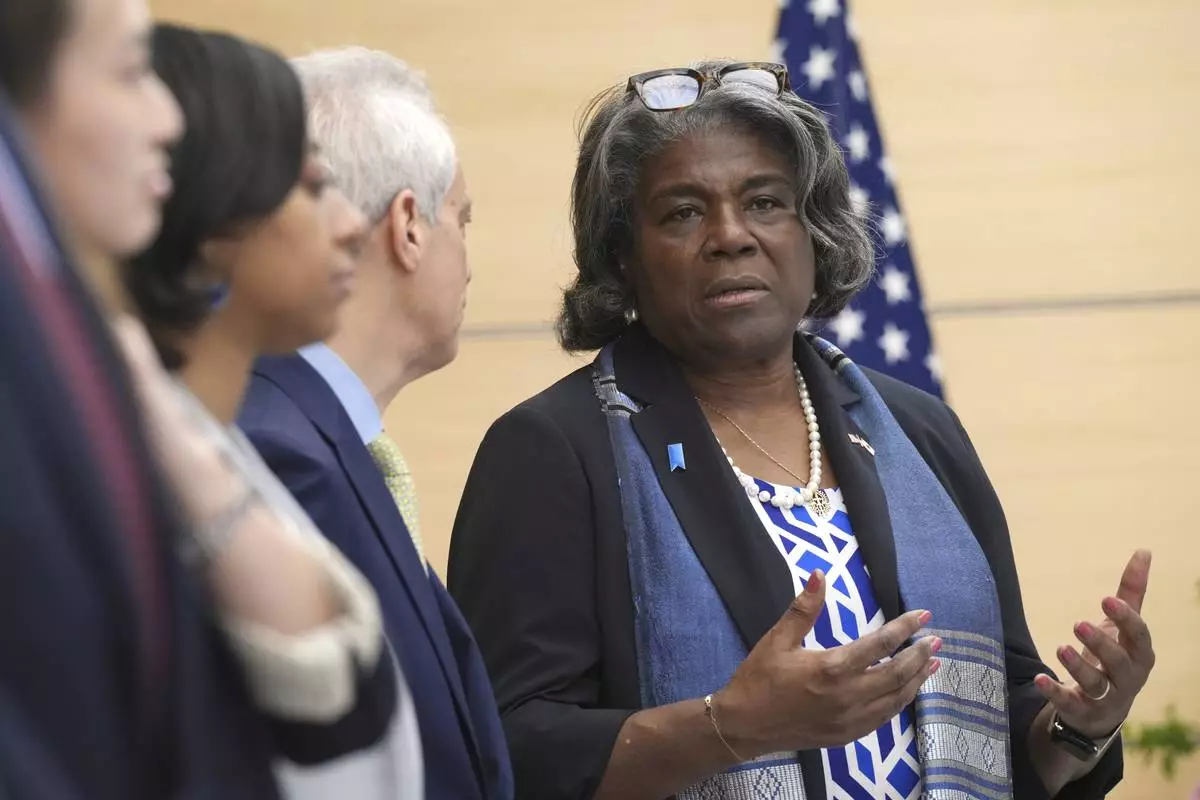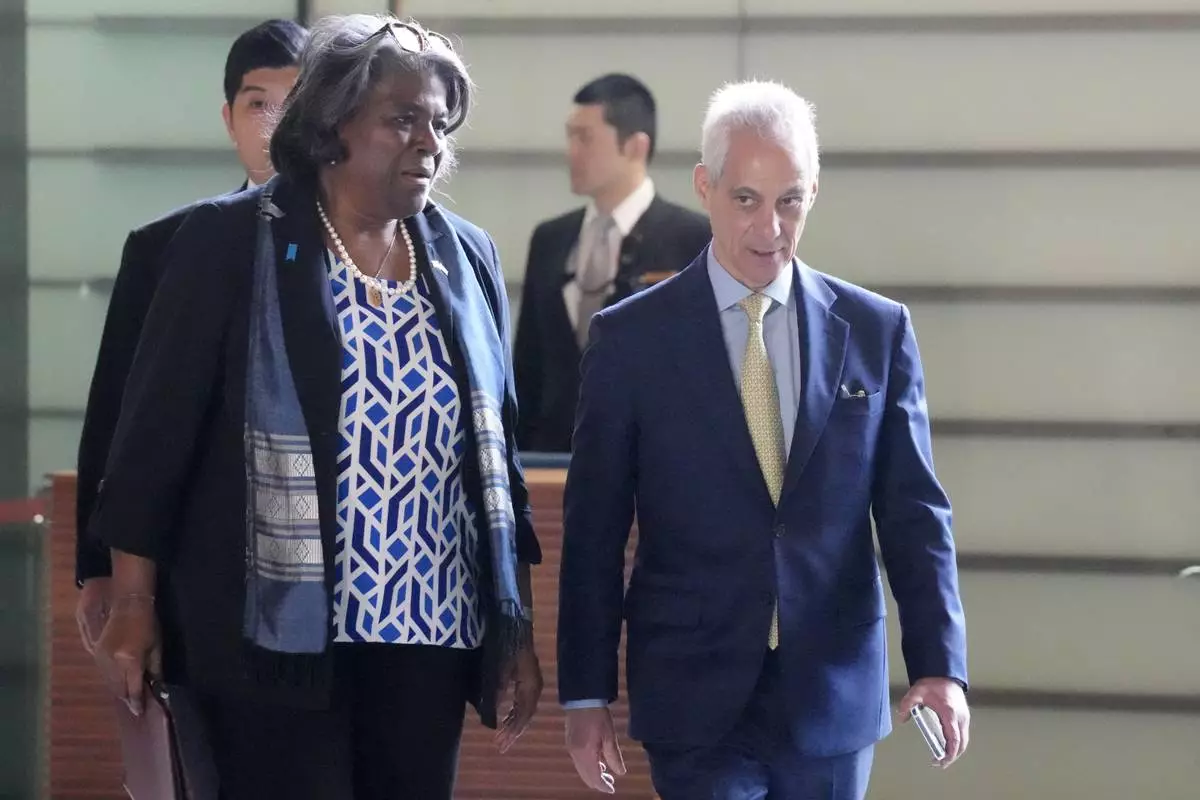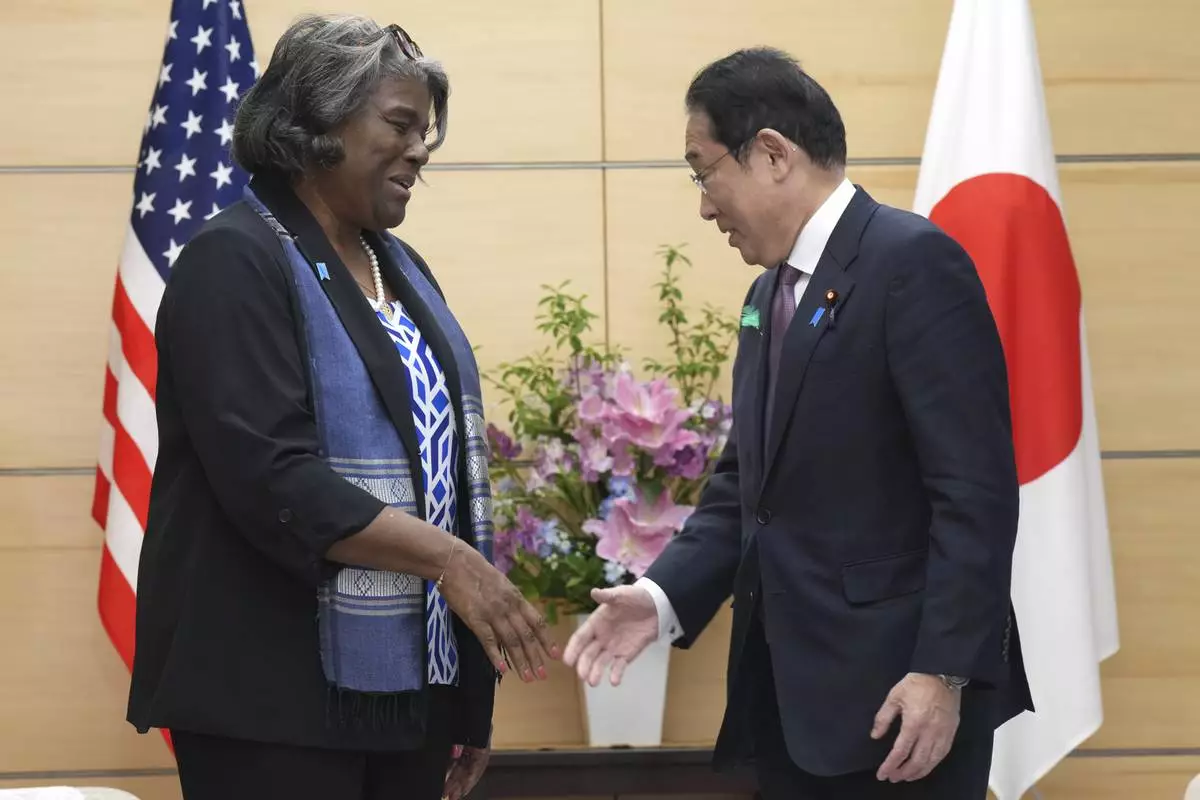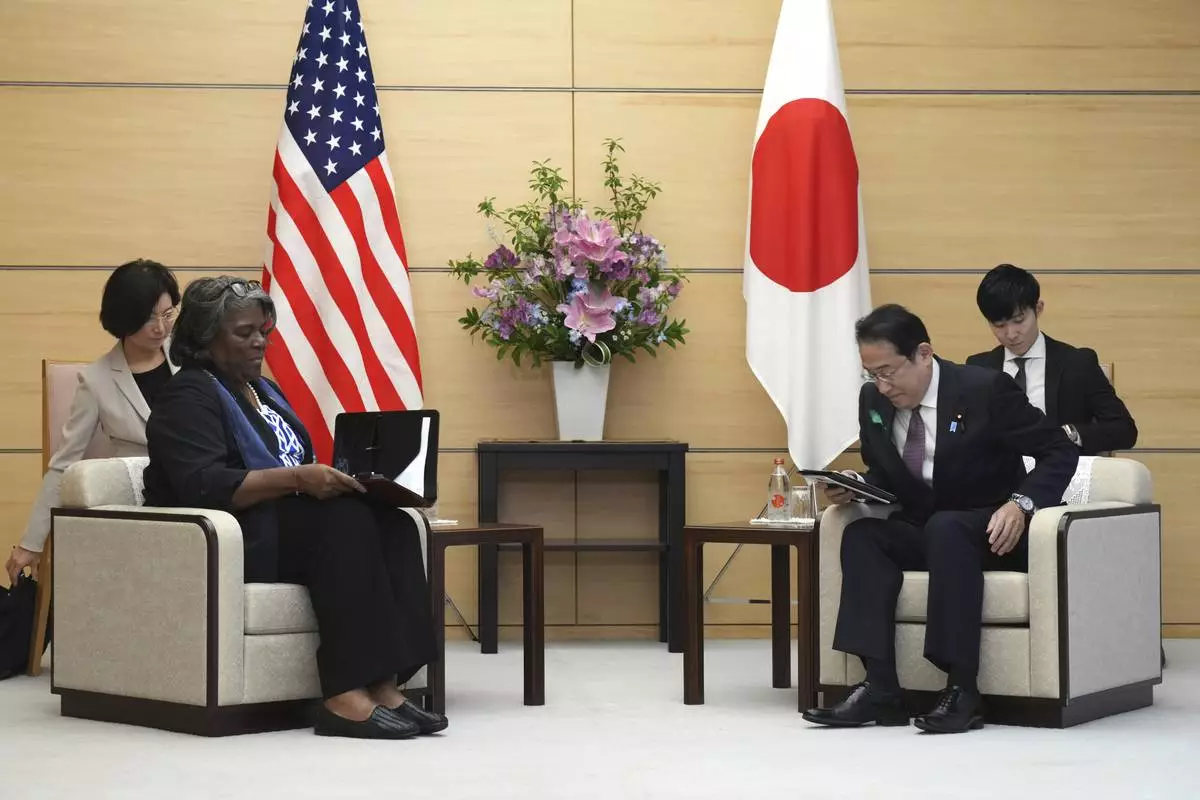California Gov. Jerry Brown wants to tighten a law he signed weeks ago that critics say could have freed rapists and murderers who completed two years of mental health treatment.
The proposal obtained by The Associated Press on Tuesday specifically bans those charged with murder, rape and other sex crimes from participating and allows judges to bar a much broader range of dangerous suspects.
It also makes clear that counties must opt in to the program after consulting with prosecutors, defense attorneys, mental health workers and local judges.
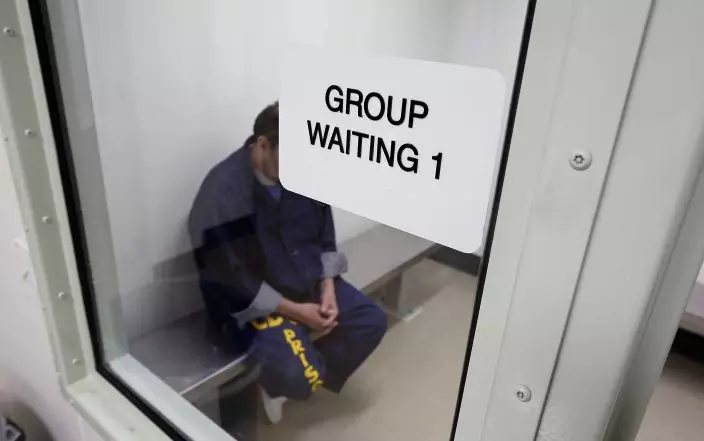
FILE - In this Feb. 14, 2013 file photo, an inmate waits for his appointment in a holding room at a mental health treatment unit at the California Medical Facility in Vacaville, Calif. Gov. Jerry Brown wants to tighten a law he signed weeks ago that critics say could have freed rapists and murderers who completed two years of mental health treatment. The proposal obtained by The Associated Press on Tuesday, Aug. 14, 2018, specifically bans those charged with murder, rape and other sex crimes from participating and allows judges to bar a much broader range of dangerous suspects. (AP PhotoRich Pedroncelli, File)
The law signed by the Democratic governor in June vastly expands the number of suspects who can be diverted to mental health treatment programs and have their charges dismissed. Prosecutors complained that the measure was far too broad and have been negotiating with Brown's administration for weeks.
The administration wants lawmakers to approve the narrower program before they adjourn for the year at month's end. It posted the new proposal Monday night.
"It seems to at least make an attempt to address most of the concerns," said El Dorado County District Attorney Vern Pierson, who led negotiations on behalf of the California District Attorneys Association with Brown's administration. "It's a significant improvement from the original language that was passed and signed into law as part of the budget."
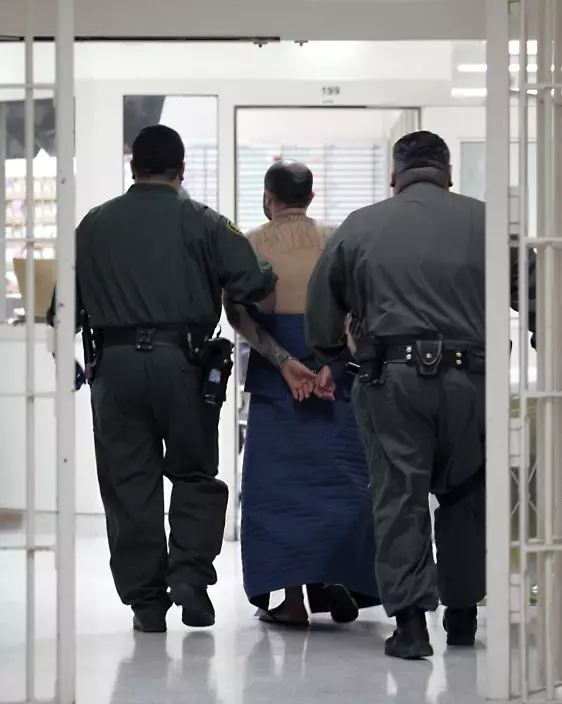
FILE - In this Jan. 14, 2009 file photo, an inmate, on suicide watch, is escorted by correctional officers at the California Substance Abuse Treatment Facility in Corcoran, Calif. Gov. Jerry Brown wants to tighten a law he signed weeks ago that critics say could have freed rapists and murderers who completed two years of mental health treatment. The proposal obtained by The Associated Press on Tuesday, Aug. 14, 2018, specifically bans those charged with murder, rape and other sex crimes from participating and allows judges to bar a much broader range of dangerous suspects. (AP PhotoRich Pedroncelli, File)
Defense attorneys said they don't object to excluding those charged with the most extreme crimes but that the revision goes too far.
The proposed rollback "guts mental health diversion and goes far beyond a reasonable compromise," said Nick Stewart-Oaten, a member of the California Public Defenders Association's legislative committee and a Los Angeles County deputy public defender. He expects more revisions as lawmakers consider the proposal.
While defense attorneys appreciate the administration's desire for a workable program, he said its latest proposal "allows counties to continue to do what they have done for years — send sick people to prison instead of treatment. The end result is higher incarceration rates for ill Californians, lawsuits for ill Californians, lawsuits against counties for mistreatment of the mentally ill and higher recidivism rates for untreated offenders."
The proposal also makes it clear that suspects can be barred from owning firearms while they are in the program and that they can be required to pay restitution, both of which prosecutors said had been unclear.
The law signed in June limits the treatment period to two years, but the administration's proposal would allow judges to extend the program for a third year.
California already allowed counties to offer such programs for offenders with developmental disabilities, traumatic brain injuries, post-traumatic stress disorder or who have mental health problems resulting from their military service.
The new law allows treatment instead of charges for any suspect with mental illnesses, including bipolar disorder or schizophrenia, though it excludes anti-social personality disorders and pedophilia.
It aims to get treatment for mentally ill suspects before they reach the criminal process, are deemed incompetent to stand trial and sent to mental hospitals, which already have large waiting lists. The current budget also includes $115 million over three years for 850 new placements in community mental health programs.
Prosecutors complained that lawmakers approved the law in one day as part of an 88-page omnibus budget bill instead of going through the usual legislative process.



